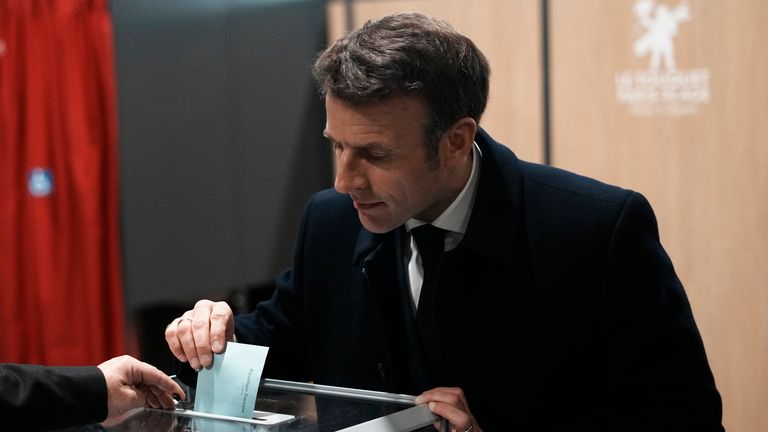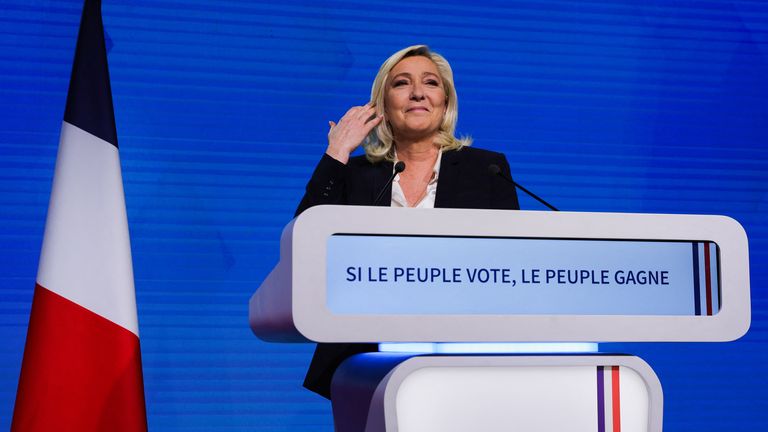
French President Emmanuel Macron will face far-right candidate Marine Le Pen in the presidential elections after making it through the first round.
With 97% of votes counted, the president secured 27.6% of the vote and his rival won 23.4%.
French voters will go to the polls again on 24 April to decide whether Mr Macron stays in the Elysee for a second five-year term.
Read more:
Everything you need to know about the French election
The incumbent, Mr Macron, called on those from both the mainstream left and right to vote for him in the second round to defeat Ms Le Pen.
“I want to reach out to all those who want to work for France. I’m ready to invent something new to gather diverse convictions and views in order to build with them a joint action,” he said.
He vowed to “implement the project of progress, of French and European openness and independence we have advocated for.”
Speaking to her supporters in Paris, Ms Le Pen said she would be “president of all French citizens” and called on them to “join her”.
Far-left candidate Jean-Luc Melenchon came third, according to French interior ministry figures, winning 21.9% of the vote.
He repeatedly urged his supporters gathered in Paris not to back for Ms Le Pen, but said that voters were now faced with their own conscience.
“The fights goes on,” Mr Melenchon, 70, said, in what he called his “political struggle”.
All but one of the remaining nine candidates knocked out in the first round have lined up to endorse Mr Macron.
Only the far-right former journalist Eric Zemmour has given his support to Ms Le Pen.
Race tightened in days before vote
Just weeks ago, the centrist incumbent Mr Macron appeared sure to win for a second time.
But after a late start to his campaign due to the war in Ukraine and Ms Le Pen’s efforts to focus on the cost of living crisis at home, the gap in their ratings closed, with the National Rally candidate within the margin of error to achieve a victory for the first time.
The vote on 24 April will be a rerun of the election five years ago, when Mr Macron, 44, secured 66% of the vote and Ms Le Pen just 33%.
Ms Le Pen, 53, who is making her third attempt at the presidency, has benefited from a drop in popularity for Mr Zemmour, her main far-right rival.
She has also tried to tone down her anti-immigration policies, choosing instead to focus on rising inflation, in an attempt to appear more moderate.
She banned her father, Jean-Marie Le Pen, from her party in 2015, and rebranded what was the National Front into National Rally in 2018 to further sanitise her image. She denies Mr Macron’s allegations of racism.



/cdn.vox-cdn.com/uploads/chorus_asset/file/24916158/IMG_2125.jpg)
/cdn.vox-cdn.com/uploads/chorus_asset/file/24759174/hero_about_living_room.png)
/cdn.vox-cdn.com/uploads/chorus_asset/file/25231421/UI___Whimsical_tiger_as_oil_painting.jpg)